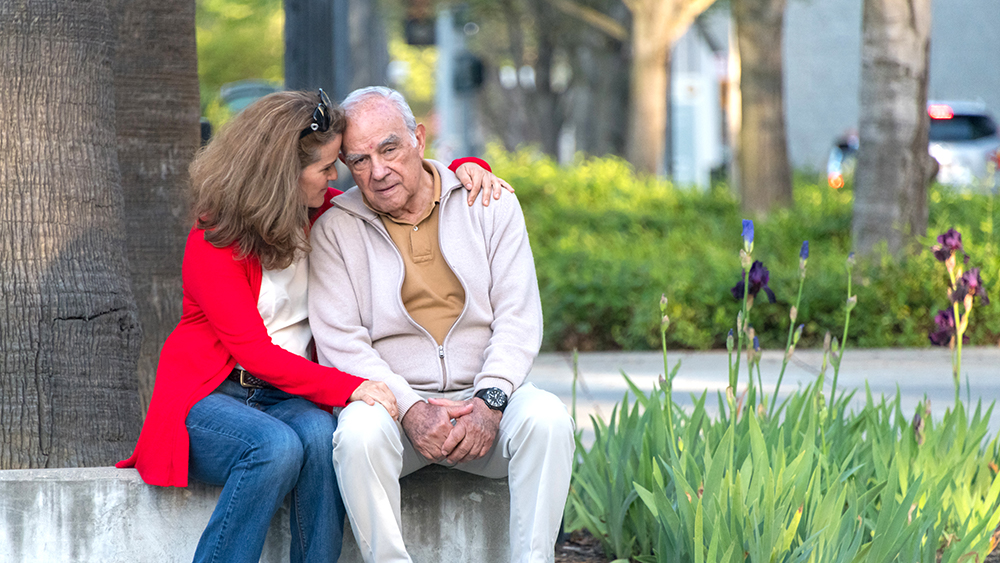Tips for Caring for Loved Ones with Alzheimer's Disease
October 21, 2019
Categories: Health Conditions
Are you a caregiver for a friend or family member with Alzheimer’s disease? If so, you’re not alone. More and more people are becoming caregivers of loved ones with Alzheimer’s as the number of people diagnosed with the disease continues to grow. Alzheimer’s disease is the most common type of dementia. It is estimated that 5.8 million Americans have it, and that number is expected to increase to 13.8 million by 2050.
How to Recognize Alzheimer’s Disease
Alzheimer’s disease occurs when changes in the brain impact thought, memory and language skills. It is considered a progressive disease, which means it begins with mild memory loss that eventually leads to the inability to carry on a conversation and perform daily activities. The progression of Alzheimer’s varies from person to person, so it can often be difficult to recognize the disease and how much it has progressed. If you or a family member has memory loss and one or more of the signs below, you should talk to your doctor.
- Memory loss that disrupts daily life, such as getting lost in familiar places
- Trouble handling money or paying bills
- Difficulty completing familiar tasks at home or at work
- Decreased or poor judgment
- Misplacing things and being unable to retrace steps to find them
- Changes in mood, personality, or behavior
Caring for Someone with Alzheimer’s Disease
Caring for someone with Alzheimer’s can be a rewarding experience that brings you closer to a loved one and provides a sense of fulfillment. But it can also be overwhelming. Many caregivers experience burnout or stress, and may forget to address their own needs. Follow these practical tips to best care for your loved one and manage the overall experience.
Respond positively. If your loved one asks the same questions over and over again or tells stories that didn’t happen, don’t disagree or try to convince them they are wrong. Reply with expressions of comfort, support, and reassurance.
Establish routines. You can maintain structure and reduce your loved one’s frustrations by establishing daily routines for meals, activities, sleep, and even bathing.
Minimize restlessness. People with Alzheimer’s can get restless easily and are sometimes prone to wandering, thinking they’re looking for someone or something. Schedule time for regular exercise and activities that limit boredom and keep them occupied.
Promote safety. Create a safe environment for your loved one by installing handrails in critical areas, blocking stairs with gates, putting away dangerous items, and always checking the water temperature before baths.
Make time for yourself. Be sure to take time to do things you enjoy doing like exercise and your favorite activities. It’s crucial that you build a support system of people who can help out when you need time for yourself. You should also look into respite care options such as in-home care services or adult day centers. As a caregiver, you should also seek support for yourself.
Learn More About Respite Services and Caregiver Support
The Holy Cross Medical Adult Day Center can give caregivers much-needed respite while providing a safe, supportive environment for seniors with chronic health problems, including Alzheimer’s disease. The center was the first in Maryland to be recognized as an Alzheimer's Foundation of America Excellence in Care Dementia Program of Distinction. Open Monday through Friday from 8 a.m. to 5:30 p.m., the center offers a full scope of services including medical, social, rehabilitative and recreational programs focused on compassion, quality of life, and safety for older adults. To learn more about the center, register for two free trial days or to schedule a tour, call 301-754-7150.
The Holy Cross Caregiver Resource Center offers a wealth of services for caregivers, including support groups, a telephone hotline, educational classes, a health information library and a complimentary newsletter for caregivers. To learn more about the Holy Cross Caregiver Resource Center, call 301-754-7152.
Holy Cross Health presents the information in this blog as a resource for our community. It is not intended to replace professional medical advice or to endorse any particular entity or service. Personal health problems should be brought to the attention of the appropriate health professionals.
